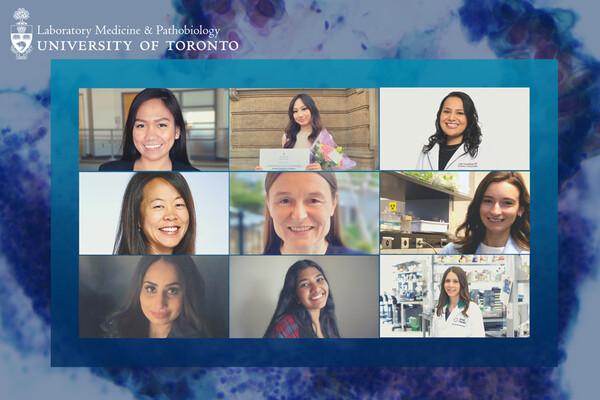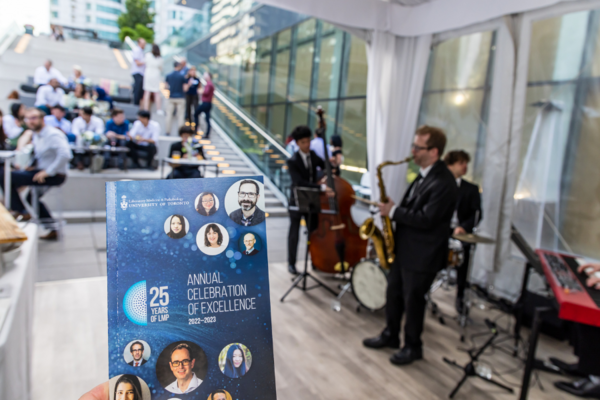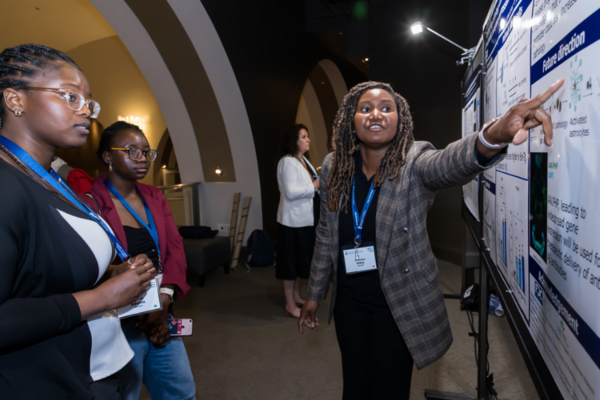Celebrating International Day for Women in Science 2024 at LMP
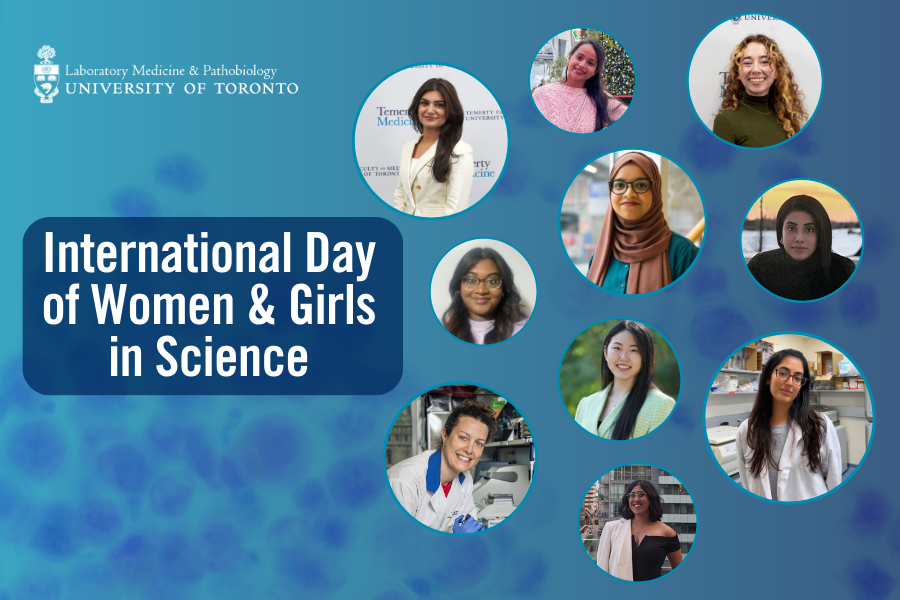
The United Nations General Assembly designated February 11th as International Day for Women and Girls in Science to strive towards gender equality for women and girls pursuing STEM-related fields.
We reached out to some of the amazing women in the Department of Laboratory Medicine and Pathobiology to find out why they love STEM and what advice they have for women looking to pursue a career in science.

Dr. Kelsie Thu
Assistant Professor in the Department of Laboratory Medicine & Pathobiology
Since I was a kid, I have always enjoyed trying to figure out how things work. During my undergraduate training, I developed a passion for biology and genetics, and that stimulated my interest in cancer biology. My focus on lung cancer specifically was inspired by personal experiences with family members being affected by lung cancer. I am strongly motivated by the hope that some of our fundamental biological discoveries could be translated into new clinical practices to improve the care and outcomes of lung cancer patients.
Seek experience in different STEM fields (e.g. research opportunities) and attend STEM-related events (e.g. lectures, webinars, lunch-and-learns, networking events) to discover what really interests you. I think practical experience really helps people identify what they are passionate about, and being passionate about something will keep you motivated and contribute to your success. I think that finding mentors that you can communicate with and learn from is also extremely valuable because they can provide you with additional insights and guidance on how you can achieve your academic goals

Aflyn Amaleethan
MHSc candidate in the Translational Research Program
After working in a clinical lab setting in my undergrad, I wished I could do more for the community. There was always this gap between what we were doing in the lab and how we actively supported our participants. Through the Translational Research Program, we aim to take a human-centric approach, seeking healthcare innovations that are meaningful and directly benefit human health.
I’ve always had an inquisitive personality. There is never a moment where I am not using the Google search bar typing away to find the answers to my next question. I think that’s what drew me to research in the first place, the idea that I could be part of the discovery process. But that's also the beauty of sciences and research, there sometimes is no answer, and it's our job as researchers to look for those solutions.
The first time I was inspired to study the sciences was in the 7th grade when I had my first look into a microscope. I can still feel the exhilaration and excitement of looking into the lens and seeing the bacteria on the slide. Fast-forward to undergrad, I chose to specialize in human health and disease where I had an opportunity to see the multidisciplinary approaches to understanding human health from bench to bedside. It was during my undergrad thesis project at the mood disorders and psychopharmacology lab that I knew I was definitely on the right path to making a difference in the healthcare community and supporting people through my research efforts.
Dream big! No matter where you are in life, don't ever let anyone tell you what you can or cannot do. There will always be someone praying on your downfall, but an army of people wishing for your success. Take every opportunity you can to talk to people in the field and explore your interests. And if no one else has said it to you yet, I believe in you and I can’t wait to see the difference you’ll make in the world!
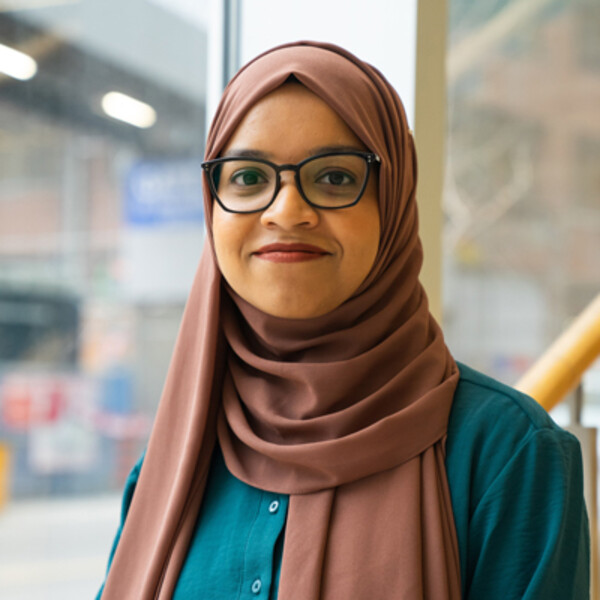
Mashiat Mimosa
PhD candidate in the lab of Dr. Rola Saleeb and Dr. Ramzi Fattouh at the Li Ka Shing Knowledge Institute, St. Michael’s Hospital
My research focuses on developing novel and more accessible diagnostic tests for brain cancer. My interest in STEM originated from loving Mathematics because it was similar to solving puzzles. Then during undergrad, I also fell in love with Biological Sciences, especially Neuroscience, because there is much we still do not know about the brain and nervous system.
Learning about the knowledge gaps in the field of Neuroscience inspired me to pursue it in graduate school to find the big questions and solve more puzzles. My PhD supervisor Dr. Rola Saleeb has been a great inspiration who proved that it is possible to fulfill your dreams no matter how ambitious they are. She has always provided tremendous support to me in my endeavours.
Find what interests you and motivates you to wake up every morning, because if you do not enjoy the subject, it will be difficult to succeed in it. Moreover, do not let gender biases or stereotypes demotivate you from pursuing your dreams. Also, after you succeed, do not forget to give back and be a role model for other young women.

Sumaya Bhatti
MHSc candidate in the Translational Research Program
I was under a lot of stereotypical pressure to become either a doctor, lawyer, or engineer. I chose the doctor path and as I completed my B.Sc. in Life Sciences, I realized it was a lot of textbooks, labs, and memorization which is important, but it wasn't fulfilling for me. It took lots of reflecting, conversations, and Google searches to figure out what I wanted to do. I stumbled upon the Translational Research Program here at UofT and that's when the path became clear to me.
What I love about TRP is that it allows me to take my love for science and research and translate it into something meaningful. Currently, my team and I are working on a capstone project to improve health and wellness for community housing tenants in Toronto.
My inspiration is my grandmother, Naseeb, who was from a small village in India before she decided to immigrate to Canada with her family. She was a young widow raising six kids on her own and never had the luxury of attending school. Despite not going to school herself, growing up the number one thing she engrained in me was that education is important but even more important was using knowledge to do something good. She inspired me to pursue my passion for science and to explore beyond academia. My experiences volunteering in non-profit organizations, long-term care, and senior care made me curious about patient-facing careers beyond medicine, leading me to TRP. I value the bench-side research I did during my undergrad, but being able to use the knowledge to develop, innovate, and implement something for direct impact has been very rewarding.
If you are unsure about what you want to do in the future, that's ok. Science is a large field so explore different avenues and be prepared that some will work out and some won't. Eventually, you will find where you fit in and what makes you excited. It is important to do some self-reflection and be honest about what your passions and interests are so that when the right doors open for you, you are willing to walk through them.
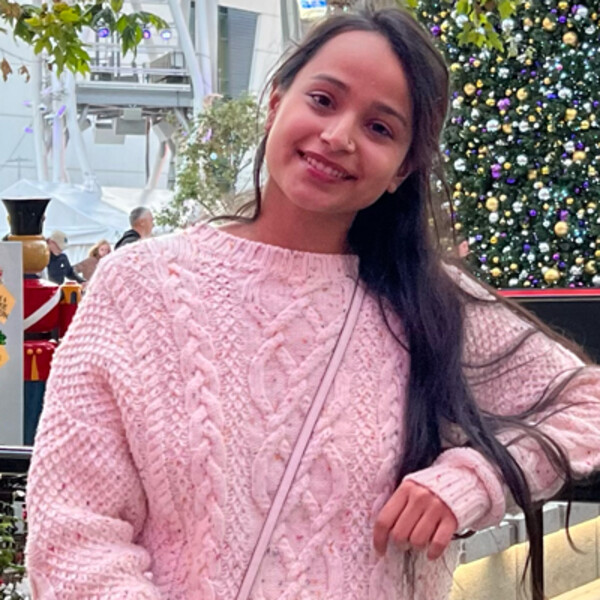
Jasmeen Kaur Monga
PhD candidate in the lab of Dr. Mansoor Husain at UHN
The focus of my project is to understand the role of B cells in blood pressure regulation and hypertension. I got involved in research and STEM because I always wanted to contribute to medical society. I love problem-solving and unraveling new avenues in the treatment and prevention of diseases through research.
Start gaining research experience early, build strong relationships with mentors, hone critical skills, seek mentorship, network, and stay passionate.

Alissa Pak
PhD candidate in the lab of Dr. Carol Schuurmans at Sunnybrook Research Institute
As part of my research, I am investigating the potential of glial cells to restore lost neurons in the retina of the eye. I really like biology. When I was in middle school in Kazakhstan, I found myself excelling in biology for some reason. I was diligent in reading the textbook and taking notes to help me memorize everything. While I was also good at other natural sciences, nothing fascinated me as much as the science behind all living organisms. The more I learned about biology, the more I realized the incredible complexity of our bodies. I was amazed by how smart everything is, and I always told others that biology is magnificent because it follows physics, is made up of chemistry, and is quantified by mathematics. I remember reading more advanced textbooks in school and not being able to understand them because I didn't know all the terms yet. Now I realize that patience is important and that building knowledge brick by brick is what makes science so exciting.
I went to South Korea for my undergraduate studies and Canada for my PhD which has enriched my life experiences and expanded my horizons. The path of a bioscience researcher is not an easy one and it can be quite frustrating at times. However, constantly reminding myself of my passion for biology helps. Because, like a curious child, researchers always ask questions and the journey to answering them can seem complicated. However, when the truth is finally discovered it is often quite simple and incredibly satisfying. It’s all about gaining a better understanding of the world and yourself.
Always believe in yourself! Become a better version of yourself and don’t compare to others. Everyone has their unique path. Never give up: if one door closes, another will open”. These words became my motto for life. Being born in a developing country that some people haven’t even heard of, I’m proud of my achievements through the years.
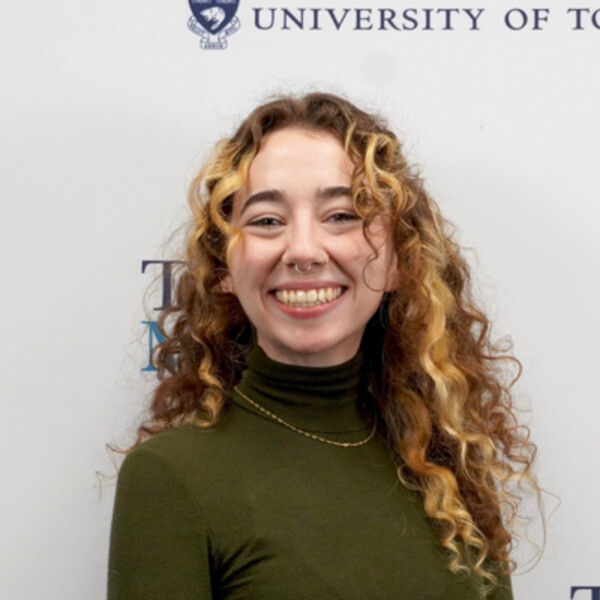
Morgan Porteous
MHSc candidate in the Translational Research Program
I’ve always been drawn to topics that (try to) make sense of the fundamentals of the universe- be it math, physics, or biology. I did well in these subject areas, and I enjoyed them, so it made sense to pursue them for higher education. Then during my undergraduate degree, I was inspired by the intertwined nature of fields that are siloed during school- we need biology and physics to understand chemistry, we need math for all of it, and we need everything for medicine!
It was during my thesis work that I realized, that while I love discovery science, I naturally gravitated towards and felt more comfortable in the realm of translational science. This field has a strong emphasis on communication and implementation, which I came to realize was important to me. Science and medicine, of any kind, affect us all but are inaccessible if you lack formal education in the field. What’s the point of scientific research if we don’t use it to help people? I believe that the knowledge within the STEM disciplines can make people happier and healthier. I’m passionate about translating all that information into concepts that people can easily digest and apply to their lives. I’m currently working on my Capstone research project which aims to develop a context-specific model of primary care within a health desert in a Hamilton neighbourhood.
Explore! Follow your natural curiosity because there is no limit to the topics and disciplines about which you can learn. If you’re not sure what that is yet or how to get there, that’s okay! Sometimes you don’t have to look too hard, the best opportunities find you. Don’t be afraid to vocalize your interests, ambitions, or curiosities because you never know what opportunities might come from simple conversations!
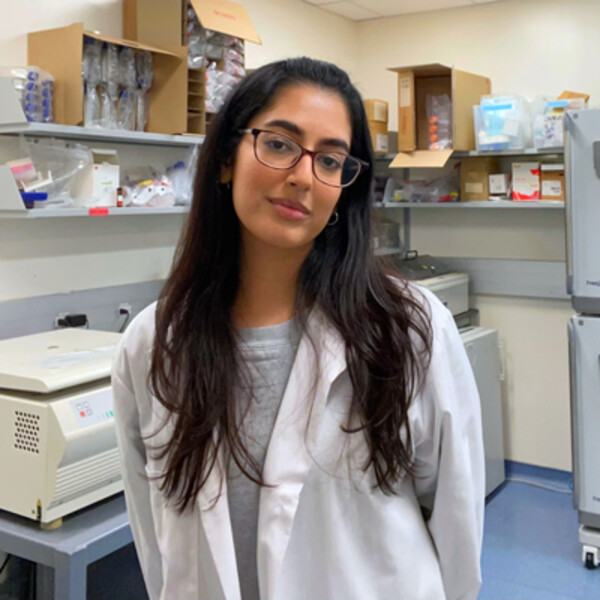
Ayla Shahid
MSc candidate in the lab of Michelle Bendeck at the Ted Rogers Centre for Heart Research
I am studying the molecular mechanisms of lung development. Aside from research, I am a coach for LMP’s Peer Communications Team (PCT), which aims to provide graduate students with training and feedback to polish their presentation skills.
I took introductory molecular biology courses in my first year as an undergraduate student and was fascinated by the intricate molecular interactions between different proteins, which motivated me to seek research experience. As an undergraduate student, I had the opportunity to work in labs studying structural biology, and epigenetics, and evolutionary molecular biology. These experiences made me realise that I enjoyed research and wanted to pursue it as a career.
If you are aiming to go to graduate school, use your time as an undergraduate student exploring different scientific topics through various courses and research experiences in different labs. This will help you develop a diverse skill set and find what fields of research you are most interested in.
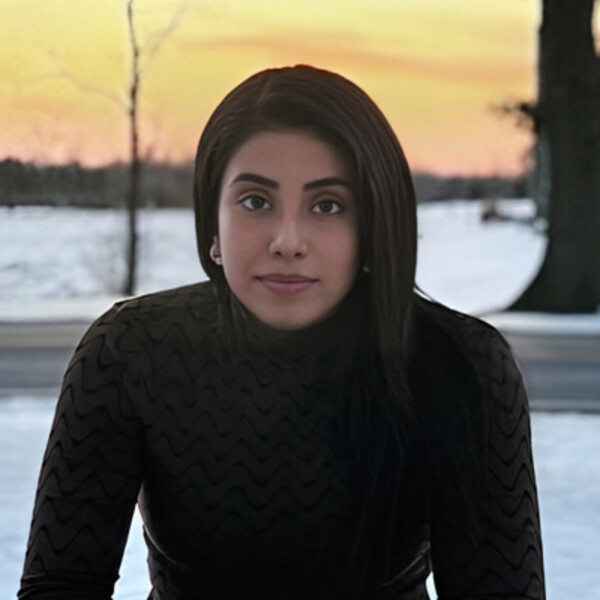
Shalini Jaisankar Sumathi
MHSc candidate in the Translational Research Program
From a licensed occupational therapist working with diverse populations in India, my career trajectory took a meaningful turn upon moving to Canada. My path to STEM was a natural progression, driven by a heartfelt interest in health sciences and a desire to make a tangible difference in people's lives. At the heart of my work is the desire to bridge the gap between scientific research and tangible patient outcomes. A key project that highlights my interest in integrating technology into healthcare is the development of an AI-powered chatbot for the Ottawa Hospital, aimed at enhancing healthcare delivery and efficiency. This project, distinct from my geriatric health focus, showcases my commitment to leveraging technology for healthcare innovation. Alongside, my work in geriatric health research underlines my dedication to improving the lives of the aging population. In STEM, I see a dynamic field where my skills and curiosity converge to address pressing health challenges and contribute to the advancement of accessible, efficient care.
Serving humanity is one of the noblest pursuits. Always remain a curious and proactive learner. Pay attention to your physical health, particularly muscle and bone health, as it is the cornerstone of a fulfilling life. Strive to learn, reach a point where you can create and innovate, and relish the joy of solving global challenges. If you're working in the field of health, that's even more special!
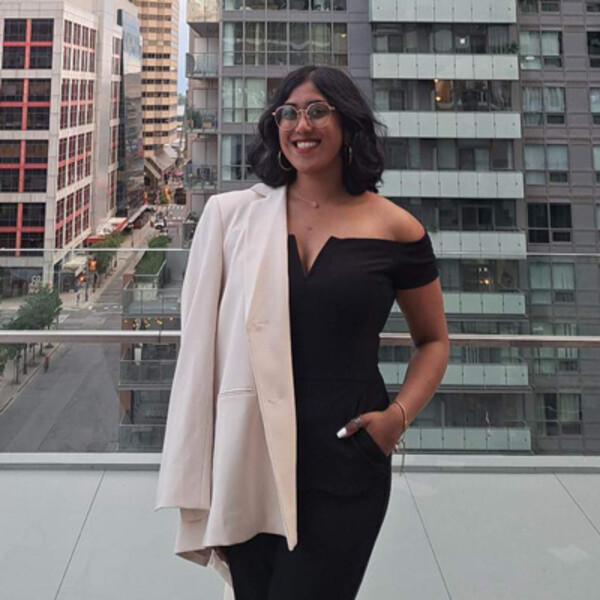
Matsya Thulasiram
PhD candidate in the lab of Dr. Alain Dabdoub at the Sunnybrook Research Institute
In the Dabdoub Lab we study inner ear regeneration to find biological solutions for hearing and balance loss. I was always interested in biology. Our bodies are incredible - to be able to understand how they work at a molecular level and see how much is constantly going on without us even thinking about it is just fascinating. I started getting interested in the biology of hearing because I have an extensive background in music and dance, so being in this field is a blend between my artistic and scientific sides and my different personal interests.
It's easy to get caught up in what the right thing to do is. Don't let anyone try and convince you what the "right" or "wrong" path is, just find something you truly enjoy and do that. It's ok if you change your mind about your exact path along the way, as long as it's a decision you made and wasn't made for you, because knowing what you don't like is just as important! And lastly, believe in yourself and surround yourself with supportive voices who will boost you and encourage you! You are great!
This story showcases the following pillars of the LMP strategic plan: Inclusive Community (pillar 1), and Agile Education (pillar 5)

